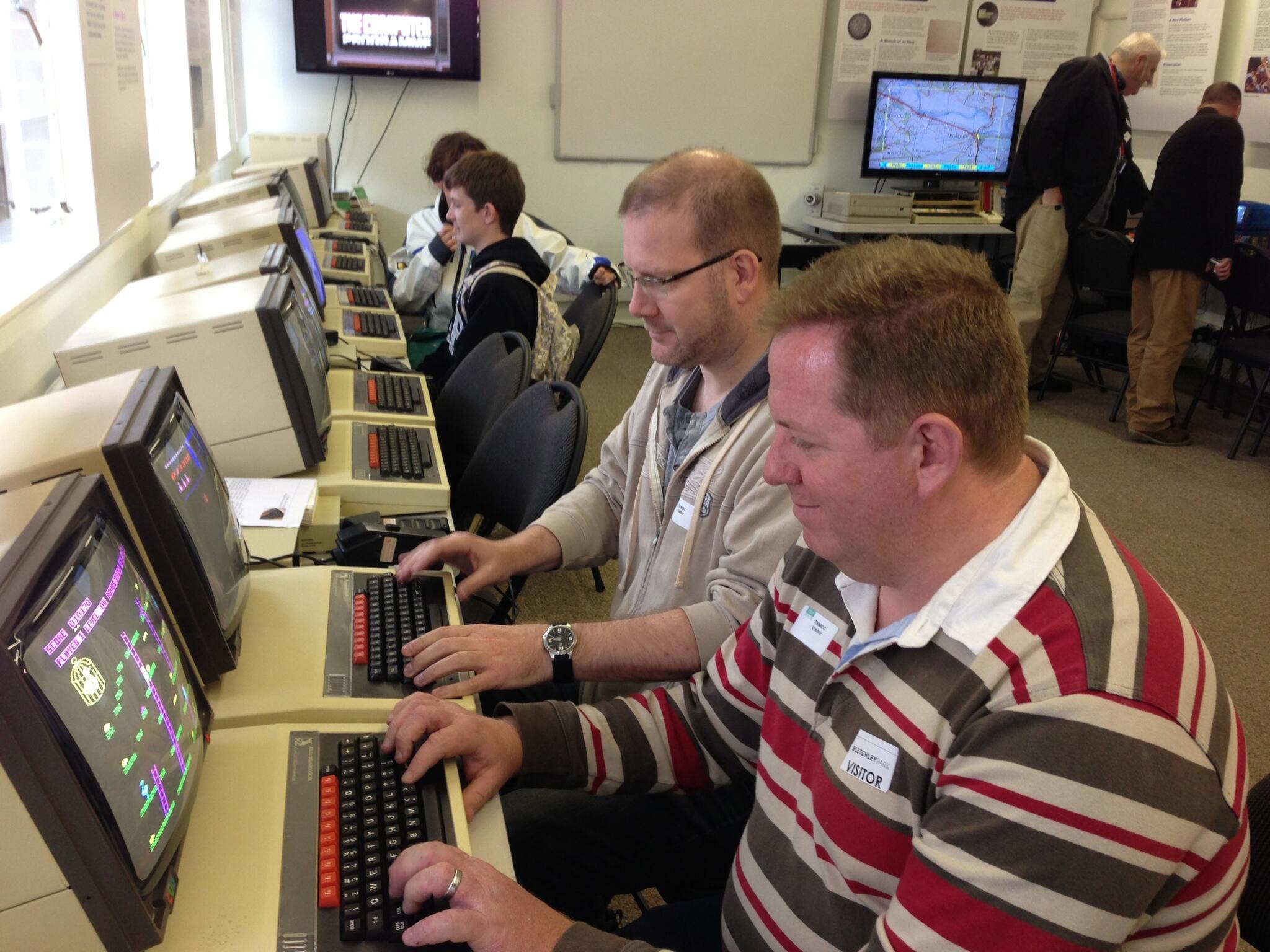All gone
 So, yesterday the deed was done. We went to TNMOC to donate my old BBC Micros.
So, yesterday the deed was done. We went to TNMOC to donate my old BBC Micros.They were happy to take the two Beebs themselves, plus the monitor and RGB TV along with the original software titles, books and magazines. They couldn't take the floppy drives (as they have a whole store-room full of them already), the non-original (copied) software and the VGA monitor from the old Apple Mac clone.
 In return we got a trip around the museum and to join in a couple of tours. The museum has really come on a long way since my last visit in 2009: in addition to the rebuilt Colossus and Heath Robinson code breaking machines, they now have a number of new galleries including one which opened only last week detailing the important role of women in computing, others show the progression from the earliest digital and analogue computers through to the modern day. Google, bless 'em, have put quite a bit of money into the museum recently, perhaps realising more than the government and heritage authorities in the UK what a rich and important part UK scientists, mathmaticians and engineers (you know - the geeks and nerds) played in developing the modern computer. Much of the recognition and plaudits for the early development work went to the other side of the Atlantic because until relatively recently (the late 80's and early 90's) most of the activity, inventions and developments that took place were still highly classified.
In return we got a trip around the museum and to join in a couple of tours. The museum has really come on a long way since my last visit in 2009: in addition to the rebuilt Colossus and Heath Robinson code breaking machines, they now have a number of new galleries including one which opened only last week detailing the important role of women in computing, others show the progression from the earliest digital and analogue computers through to the modern day. Google, bless 'em, have put quite a bit of money into the museum recently, perhaps realising more than the government and heritage authorities in the UK what a rich and important part UK scientists, mathmaticians and engineers (you know - the geeks and nerds) played in developing the modern computer. Much of the recognition and plaudits for the early development work went to the other side of the Atlantic because until relatively recently (the late 80's and early 90's) most of the activity, inventions and developments that took place were still highly classified. Walking round the museum I remembered that I had written a school project on early computers when I was in what was effectively 2nd year at Senior school (around 1984). Even within my own lifetime, some 40 years after the end of the 2nd World War, the computers built and used at Bletchley Park were unknown to the general public. As a result, I wrote that the Americans built the worlds first programmable computer, ENIAC I think it was. Of course we now know that the credit should really go to the British - hoorah!
Of course the most exciting part of the museum (for us anyway) are the old BBC micros, Apples and games machines - of which there are many. I saw one of the machines that gave me my first taste of computing, even before my BBC, an Apple II.
 We spent quite a while playing the old games on the BBCs and desperately trying to remember the syntax for all the commands that would allow us to write "Andy woz 'ere" across the screens in multi-colour. They even had a BBC Doomsday project machine, complete with laser disc and trackerball which despiteknowing about it from when it was launched, I had never seen, let alone played around with one. As you might expect, it was somewhat basic compared with Google Maps but for something that was developed almost 30 years ago, it was groundbreaking.
We spent quite a while playing the old games on the BBCs and desperately trying to remember the syntax for all the commands that would allow us to write "Andy woz 'ere" across the screens in multi-colour. They even had a BBC Doomsday project machine, complete with laser disc and trackerball which despiteknowing about it from when it was launched, I had never seen, let alone played around with one. As you might expect, it was somewhat basic compared with Google Maps but for something that was developed almost 30 years ago, it was groundbreaking.So, all in all, an excellent day. Because of the donation, we got into the museum for free, but the very modest entrance fee of £5 is an absolute bargain, even if you just want to go and have a play on some old computers for a bit of nostalgia.




No comments:
Post a Comment